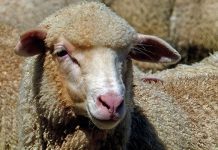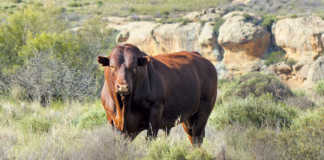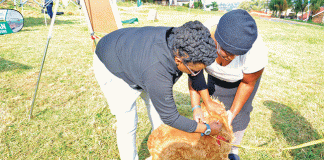If not addressed, the following could cause disease in your animals:
Dirty surroundings
If sheep and goats are kept in a dirty kraal, they could wind up drinking water contaminated with droppings. These droppings may contain germs that could make them sick.
Solution: Try to clean out kraals where possible. Remove manure regularly.
Poor condition
If your sheep or goats are in poor condition and if you aren’t feeding them well, they can become sick easily.
Solution: Supplement rations with extra feed during winter and remember that pregnant females need more feed to produce healthy offspring.
Stress
Overcrowding, underfeeding, poor transportation methods and management procedures (tail docking, castration, ear-tagging and shearing) cause stress, which can make animals ill.
Solution: Avoid overcrowding and treat the animals in a relaxed manner. If you are transporting them, make sure they have enough water, and that they are not too hot or too cold. Avoid loading too many animals on one truck.
Not vaccinating animals
Vaccinating sheep and goats against diseases that occur frequently in your area will help to prevent certain diseases. It’s usually cheaper to vaccinate your animals than to treat or put down sick animals. If females aren’t vaccinated before giving birth, they won’t be able to pass on protection to their young, through their milk.
This could result in some animals becoming sick a few days or weeks after being born. It’s also important to vaccinate females against tetanus, since the offspring will also be protected against this disease.
Solution: Consult a vet to decide what vaccines to use and when to use them.
Lambs not suckling enough
In order for lambs to receive enough protection, they need to suckle as much as possible from their mothers, especially in their first few days.Solution: Allow females to stay with their offspring for the first few days after giving birth. If you have extensive grazing, try to keep lambs with their mothers at night so they can suckle.
New animals
Buying sheep or goats without checking them carefully could bring all kinds of diseases onto your farm.
Solution: Buy from a farmer you can trust and check the animals properly to ensure they are free of diseases. If you’re unsure about what to look for, consult your local animal-health technician or vet.
Source: Animal Health for Developing Farmers, from the ARC Onderstepoort Veterinary Institute.













